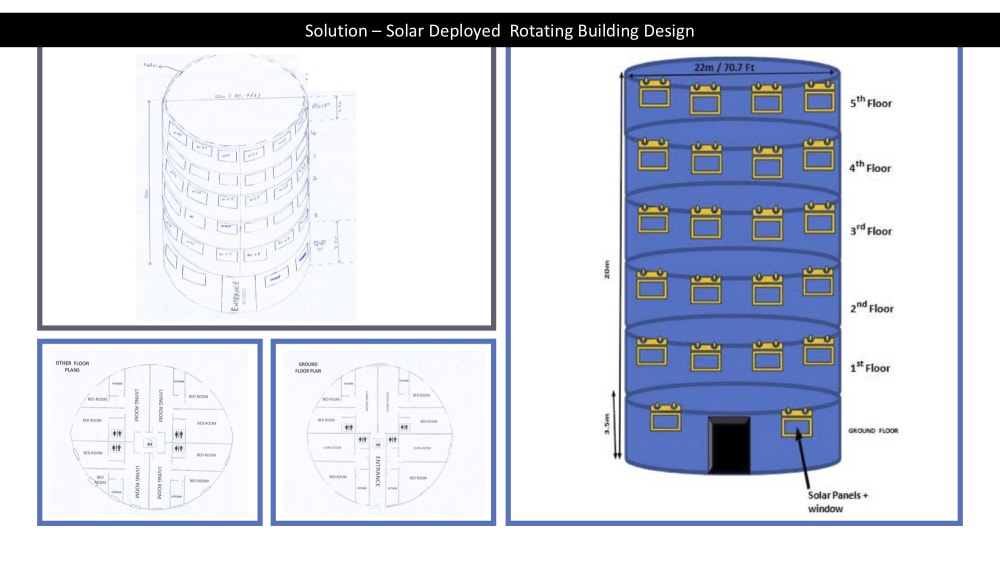It is well known that the sun's path is set naturally under a fixed timetable and can be easily predicted using the sun's Equation by only inputting longitude, latitude and date, day, month of the year. Based on these we can know the exact sunrise times and sunset times and also know the exact location of the sun in the sky (elevation and azimuth angles).
Once these are known the next step is to allow solar panels to rotate according to the sun's equation based on its placement and day and time of the year. In this project this has been done by implementing the sun's equation using the software LabView.
By keeping the solar panel perpendicular to the sun we can maximize the solar panels efficiency. Now imagine that if we can place these panels on buildings alongside the windows and allow each floor to rotate independently according to the sun position in the sky using the algorithm defined in the LabView software. We can allow the whole building to be powered using the panels placed alongside the windows. So instead of taking power from the grid through a non-renewable resource we can completely run the whole building using solar panels and we can maximize the output (efficiency) of the solar power by rotating our building to allow the sun's light to always strike the panels perpendicularly.
The design for such a building, "Solar Deployed Rotating Building," is my project and its design can be seen in the illustration provided with this submission.
Like this entry?
-
About the Entrant
- Name:Muhammad Rehan Siddiqi
- Type of entry:individual
- Software used for this entry:Microsoft Visio and LabView
- Patent status:none

